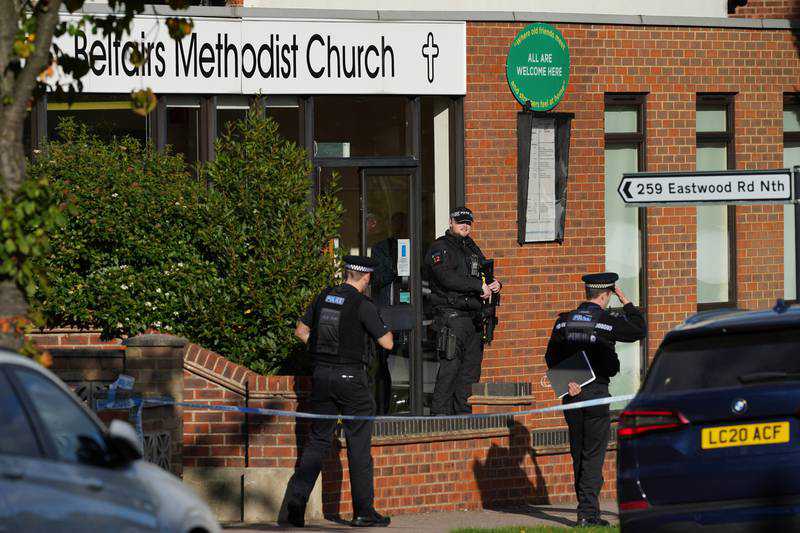Ali Harbi Ali named as terror suspect in Sir David Amess murder
18 October, 2021

UK police on Saturday named Ali Harbi Ali as the man arrested on suspicion of killing British politician Sir David Amess.
Detectives have until Friday, October 22, to question the suspect after he was detained under the Terrorism Act, which allowed them to extend his detention, authorities said.
The investigation is being led by Scotland Yard's Counter Terrorism Command and officers are exploring "a potential motivation linked to Islamist extremism".
Veteran Conservative MP Amess, 69, was talking with voters at a church in the small town of Leigh-on-Sea east of London when he was stabbed to death on Friday.
Ali, 25, a British citizen of Somali heritage, had been referred to the UK's scheme for those thought at risk of radicalisation a few years ago. He didn't spend long on the Prevent voluntary programme, however.
Police and security services believe Ali acted alone. The Sunday Times reported he may have been "self-radicalised" and inspired by Al Shabab, the Al-Qaeda-linked Islamists in Somalia.
His father, Harbi Ali Kullane, a former adviser to the prime minister of Somalia, said he felt "very traumatised".
"It's not something I expected or even dreamt of," he told The Sunday Times while confirming his son had been apprehended.
Police said they had been carrying out searches at three addresses in the London area in a "fast-paced investigation".
Earlier on Saturday it was reported Ali stabbed Amess multiple times in the presence of two women staff, before sitting down and waiting for police to arrive. He is believed to have booked an appointment a week ahead.
On Saturday evening, hundreds of mourners attended a candlelit vigil at a sports field near the scene of the crime, holding a minute's silence in the MP's memory.
Prime Minister Boris Johnson visited the crime scene to pay his respects on Saturday, laying floral wreaths outside the church with the leader of the opposition, Labour leader Keir Starmer in a rare show of unity.
Local residents including members of the Muslim community also heaped bouquets next to the police tape.
Security of politicians placed under spotlight
Home Secretary Priti Patel on Friday ordered police across the country to review security arrangements for all 650 MPs and The Sunday Times reported that every MP could be granted security protection when meeting the public.
"We will carry on... We live in an open society, a democracy. We cannot be cowed by any individual," Ms Patel told journalists after laying a wreath for her fellow Essex MP.
Tobias Ellwood, a Conservative MP who tried to save a stabbed police officer during a 2017 terror attack near the Houses of Parliament, on Twitter urged "a temporary pause in surgeries, or face-to-face meetings with constituents, until the security review is complete.
House of Commons Speaker Lindsay Hoyle wrote in The Observer that "we need to take stock" and review whether security measures introduced after Cox's murder are "adequate to safeguard members, staff and constituents, especially during surgeries".
MPs and their staff have been attacked before, although it is rare.
But their safety was thrown into sharp focus by Brexit, which stoked deep political divisions and has led to often angry, partisan rhetoric.
In June 2016, Labour MP Jo Cox was killed by a far-right extremist, prompting demands for action against what lawmakers said was "a rising tide" of public abuse and threats against elected representatives.
A specialist police unit set up to investigate threats against MPs in the aftermath of Cox's murder said 678 crimes against lawmakers were reported between 2016 and 2020.
Amess himself wrote about public harassment and online abuse in his book, Ayes & Ears: A Survivor's Guide to Westminster, published last year.
"These increasing attacks have rather spoilt the great British tradition of the people openly meeting their elected politicians," he said.
MPs have had to install security cameras and only meet constituents by appointment, he added.
Unlike some MPs, Sir David publicised meeting times for constituents on Twitter and held them in public places, while asking people to book ahead.
Source: www.thenationalnews.com
